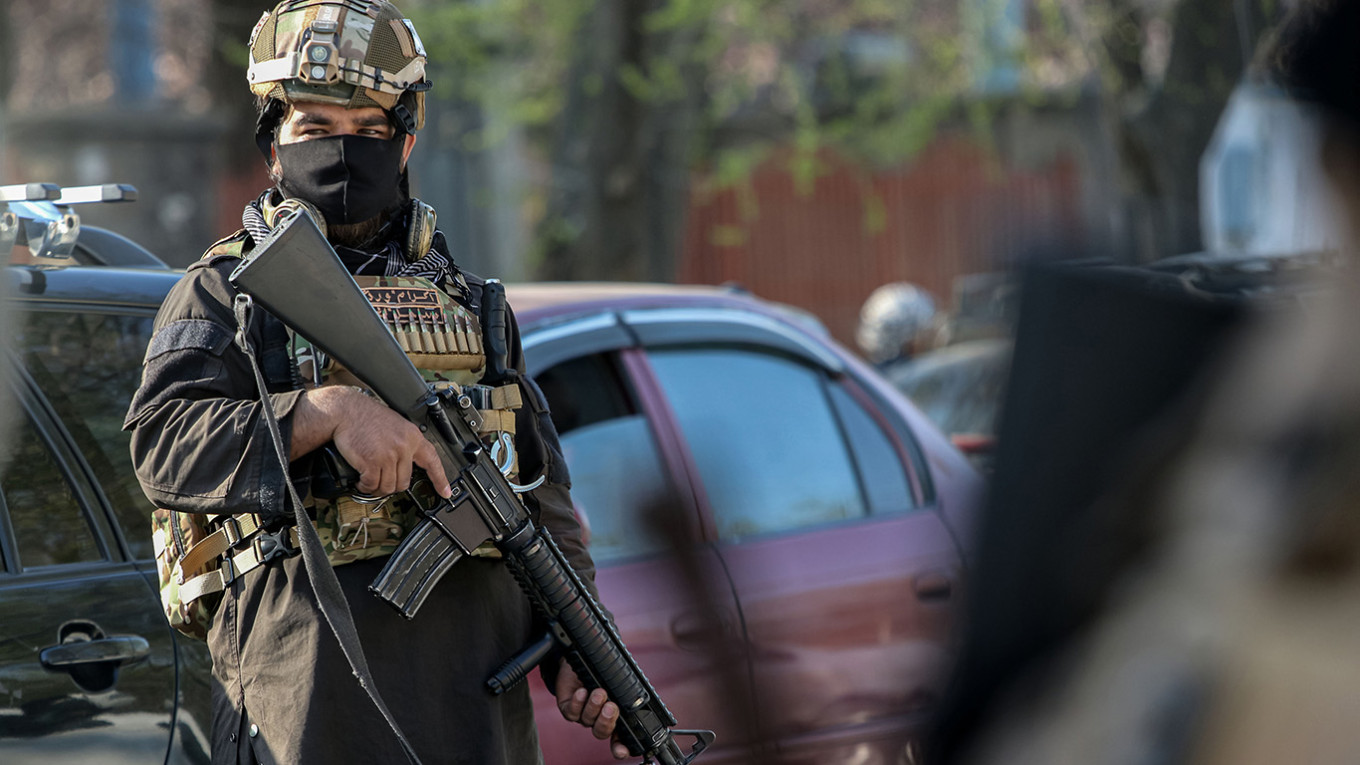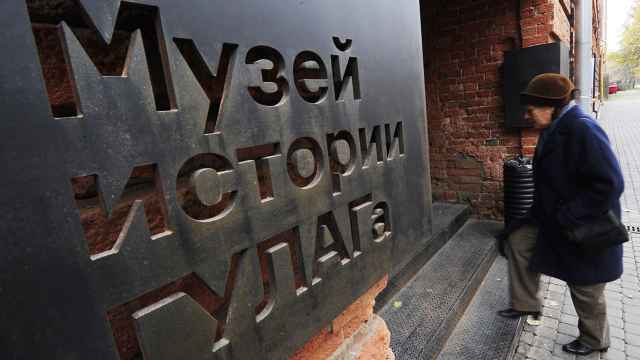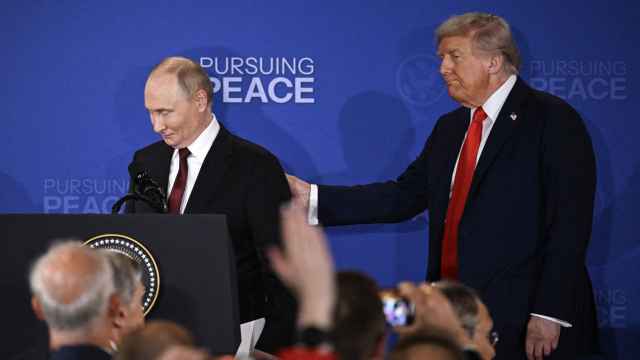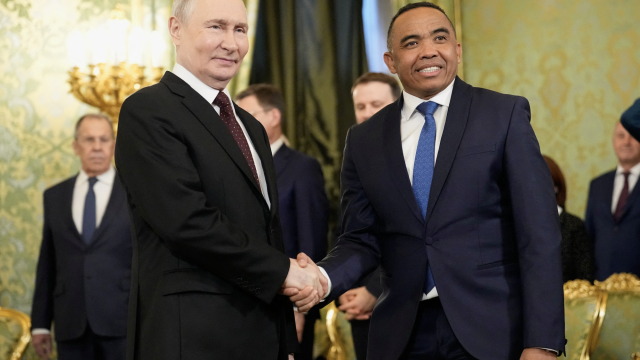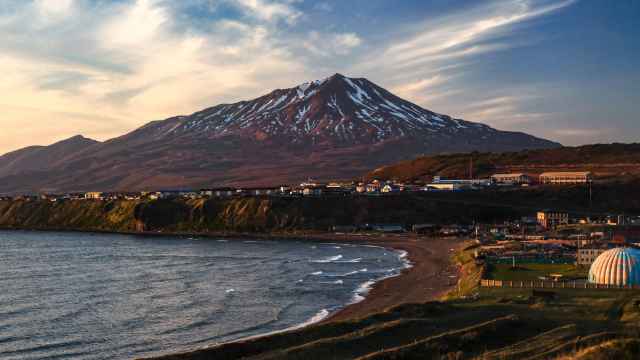Russia officially removed the Taliban from its list of designated terrorist organizations, a legal formality that follows years of pragmatic engagement with the Afghan militant group.
While the Taliban has been banned in Russia since 2003, Thursday’s Supreme Court decision does not amount to a formal recognition of its government, experts say. Still, it reflects Moscow’s ongoing shift toward new regional alliances after its invasion of Ukraine strained ties with its traditional partners.
Moscow has taken steps to normalize ties with the Taliban since the Islamist group seized control of Afghanistan in 2021 following the chaotic withdrawal of U.S. and NATO troops from the country.
“Russia has long cooperated with the Taliban despite their formal designation as a terrorist organization,” Ruslan Suleymanov, an expert on Central Asia and Islamist movements, told The Moscow Times.
“This cooperation with the Taliban and other Islamist groups has become part of Russia’s state policy and propaganda in its confrontation with the West. Since the Taliban are a vivid example of resistance to Western influence, it’s important for Russia to show solidarity with such movements on the international stage,” Suleymanov said.
Taliban delegations visited Russia’s flagship St. Petersburg International Economic Forum in 2022 and 2024. Last year, the Taliban’s top diplomat also held talks with Russian Foreign Minister Sergei Lavrov in Moscow.
“We’ve been moving toward this decision for a long time,” a Russian government official told The Moscow Times, speaking on condition of anonymity due to the sensitivity of the issue.
“The question is how coordinated this move is with our partners and allies,” he said, referring to Russia’s regional partners in Central Asia. “We’ll see how our partners react. It will be a litmus test of our relations.”
Political analyst and Central Asia expert Arkady Dubnov called the move “expected and politically opportunistic.”
“Refusing to label the Taliban as terrorists is by no means the same as granting them political recognition,” he wrote on the Telegram messaging app.
“The Taliban should be incentivized through economic and pragmatic means — a process that will take years. Time flows slowly in the East. But Afghanistan is an inseparable part of Central Asia,” he said, noting that Russia’s interests in the region demand cooperation with Kabul.
One key area of cooperation is security.
Russia on Thursday expressed gratitude to the Taliban for "the military operations conducted by the authorities," as both Moscow and the Taliban have been working to eliminate Islamic State-K. The extremist group is responsible for numerous deadly attacks in Afghanistan and Russia, including the March 2024 concert hall massacre in Moscow that killed 145 people.
The Taliban has hailed the lifting of the ban on its activities in Russia, saying that Moscow and Kabul “are bound to establish strong economic and diplomatic relations in the future."
But despite growing ties, the Taliban remained legally classified as a terrorist organization in Russia for nearly two decades — a designation that came with consequences.
At least 37 people in Russia faced criminal or administrative charges between 2016 and 2025 over alleged ties to the group, according to the independent news outlet Vyorstka.
Of these, about 20 people were penalized for displaying Taliban symbols on social media or messaging platforms with fines or brief administrative arrests. In a rare lenient ruling, prominent journalist Nadezhda Kevorkova was released with a fine after being convicted of "justifying terrorism" for two social media posts mentioning the Taliban.
At least nine others were convicted under criminal charges for promoting or inciting terrorism. Some were sentenced to up to 12.5 years in a high-security penal colony, Vyorstka said.
Since the invasion of Ukraine, Russia has added many prominent opposition figures to its list of “extremists and terrorists,” a designation that means they are banned from holding certain professions, running for office, founding media outlets and their bank accounts are frozen.
“There’s me and my colleagues from the Anti-Corruption Foundation, Leonid Volkov's father and many wonderful and good people who are on the list of terrorists,” said Ivan Zhdanov, an exiled ally of the late Kremlin critic Alexei Navalny.
“I wonder, if we all join the Taliban, will they ban it again?” said Zhdanov, who was added to the list of extremists and terrorists in 2022.
This week, four independent journalists were sentenced to 5.5 years in prison for alleged ties to Navalny’s groups, which Russia banned as “extremist.”
The decision to lift the ban on the Taliban could serve as a strategic move for Moscow, as its ability to engage with the authorities in Afghanistan could give it leverage with regional partners and the new U.S. administration.
According to political analyst Andrei Serenko, it remains unclear what kind of political game Russia’s move to rehabilitate the Taliban will fit into.
“Will Moscow try to revive efforts to build a regional consensus on Afghanistan — with Iran, China and others — in response to future U.S. initiatives? Or will the Kremlin make a bold move and, amid the growing intrigue of a possible reset in U.S.-Russia relations, decide to play the Afghan game together with Donald Trump’s administration?” Serenko asked in comments to Russian media.
A Message from The Moscow Times:
Dear readers,
We are facing unprecedented challenges. Russia's Prosecutor General's Office has designated The Moscow Times as an "undesirable" organization, criminalizing our work and putting our staff at risk of prosecution. This follows our earlier unjust labeling as a "foreign agent."
These actions are direct attempts to silence independent journalism in Russia. The authorities claim our work "discredits the decisions of the Russian leadership." We see things differently: we strive to provide accurate, unbiased reporting on Russia.
We, the journalists of The Moscow Times, refuse to be silenced. But to continue our work, we need your help.
Your support, no matter how small, makes a world of difference. If you can, please support us monthly starting from just $2. It's quick to set up, and every contribution makes a significant impact.
By supporting The Moscow Times, you're defending open, independent journalism in the face of repression. Thank you for standing with us.
Remind me later.




